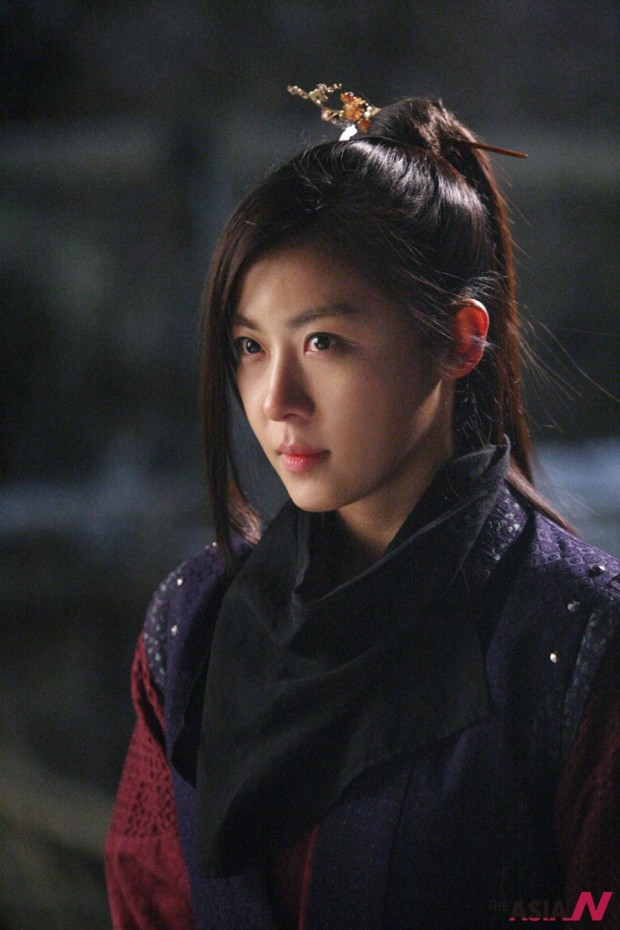Empress Ki and Viktor Ahn
As a historian of Korea and a fan of lavish re-creations of historical settings in TV and film, I couldn’t help but be drawn to the hit television drama, “Empress Ki” (Ki Hwanghu).
This historical figure, who became the wife of the Mongol emperor in 14th century China, was arguably once the most powerful person in the world, which was in stark contrast to her early life as an enslaved Korean sent to China as human “tribute.” Her story of hardship and success has made her an interesting subject for a television series.
The popularity of this drama, however, has clearly disturbed many people in Korea who take their history seriously, for in the name of dramatic license the show’s writers and producers have concocted preposterous storylines. In the early episodes, for example, we are made to believe that the then young woman could have passed herself off as a swashbuckling male leader of a group of righteous bandits.
There is no need to review all of the absurd historical distortions and turns in the drama, for such problems appear not to matter to those who make the show and, more importantly, to the millions who watch it regularly. Rather, it seems more productive to think about the parallels between historical issues and present-day ones in South Korea.
Here is why the success of Viktor Ahn of Russia, the Korean-born short-track speed skater who won three gold medals in the 2014 Sochi Winter Olympics, is so intriguing.
First, here’s a brief overview of the actual Empress Ki, from available sources: As a girl, she was ensnared in the periodic roundups of Korean female slaves bound for Mongol-controlled China during the latter part of the Goryeo Kingdom (10th-14th centuries).
Once in the capital (present-day Beijing), she caught the eye of the Mongol emperor, Toghon Temur, and became his favored concubine and then his queen. When her husband eventually lost interest in governing, Lady (“Empress”) Ki took over the throne, securing her power from the fact that her son was the crown prince.
Official Chinese and Korean records, written by the succeeding Ming Dynasty and the Joseon Kingdom, respectively, portray her negatively and decry her abuse of power. The Korean sources also stress her intervention in Korean affairs from her perch in China and the venality of her family members, especially her brothers, in her homeland.
Historians have questioned this starkly disparaging depiction of her in the official records, but the producers of the TV drama have turned her into not only a complex and sympathetic figure, but also a national hero in the struggles against Mongol domination.
Rendering historical themes and events into nationalist allegories is certainly nothing new to the Korean entertainment industry, nor to the Korean historical profession. But I would suggest that, in this case, the revisionism, though executed badly, might be enlightening.
Like Ahn, Empress Ki can be considered a Korean who overcame the constraints of political circumstances to make her mark as a non-Korean. Though originally of Korean nationality or ethnicity — perhaps a problematic notion in the 14th century — both Ahn and Empress Ki transcended the boundaries of Korean-ness and thereby expanded the range of Korean influence and visibility beyond the peninsula. Ahn was celebrated by South Koreans for his successes, so why not Empress Ki?
Regardless of whether the makers of this drama have thought in such terms, the example of Empress Ki reflects well the ongoing globalization of South Korea, not only as a state and an economic powerhouse, but also as a society and a people. Furthermore, just as the hit makers of TV dramas, movies and pop music in the “Korean wave,” also known as hallyu, today spread Korean popular culture to other parts of the world, Empress Ki led the surge of interest in Korea as a source of exotic people and culture for China in the 14th century.
Koreans such as Lady Ki and other travelers to China partook in the relatively open cultural exchange that was permitted by the singularly vast Mongol empire, which stretched from Korea in the East all the way to Europe in the West and in many civilizations in between, such as India, Persia and even Russia.
Back in the 14th century, in other words, Koreans did not only spread their culture to far-flung places but also acquired the fruits of many other civilizations. This achievement is worth remembering today, as the content and very meaning of Korean identity have changed dramatically over the past two decades through the influx of immigrants and the country’s increasing cultural interaction with the rest of the world. By Hwang Kyung-moon, The Korea Times

























































